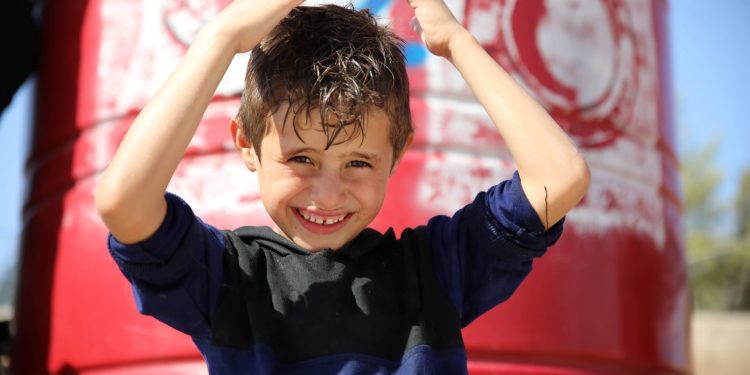A few days ago, the 11th anniversary of the start of the Syrian crisis took place, during which the water resources and facilities have been illegally targeted, and that have created huge difficulties to the humanitarian works carried out by the Syrian Arab Red Crescent and his partners. However, they have put hands together and addressed all obstacles to help everyone in need across the country.
Water stations have been targeted and thousands of people have been affected
Even though the International Humanitarian Law (IHL) guarantees full protection of vital facilities during conflicts and crises, water stations got damaged, totally or partially, and some of the stations went out of service. And that has resulted in depriving thousands of people of access to water. So, in record time (one year) we managed to rehabilitate 75 water pumping stations, 8 purification stations, and to install more than 100,000 meters of water networks and 23,000 meters of sewage networks. This makes 2021 the year of great achievements, in which the alternative solutions to providing clean water have been abandoned as they for being good for nothing but to bring waterborne diseases.
Northeast Syria…. 3 Years of distress and desperate need for water
In the northeast of the country, people have suffered greatly due to the lack of water. From October 2019 until now, thousands of families in Al-Hasakah have suffered from uncertainty about water resources that witnessed interruptions every now and then. Our volunteers have planned and implemented an emergency response to meet the needs there. They have ensured access to water for people in 4 sheltering camps and 113 sheltering centers in Al-Hasakah, through trucking water, installing fixed tanks, or distributing water bottles.
Elimination of waterborne diseases
In areas that suffer a lack of water, some alternative solutions to providing water were available to meet the water needs, nevertheless, the obtained water wasn’t clean or safe! It is most probably polluted and transmits a wide range of diseases, some of which are contagious and live-threatening.
Therefore, the Syrian Arab Red Crescent provided more than 3,000 tons of water sterilization material, in addition to raising awareness about these diseases by providing more than one million health-promoting items to more than one million people in Syria.
Humanitarian efforts mean all humanitarian hands together
Water makes up about 70% of the human body, so clean water is a fundamental component of health wellbeing. Based on that, the volunteers of the Water and Rehabilitation Department of the Syrian Arab Red Crescent have devoted their best efforts, in are cooperating with all partners in humanitarian work such as the ICRC, the NRC, and UNICEF, to ease access to clean water for families in need and to ensure a better life for vulnerable communities.

